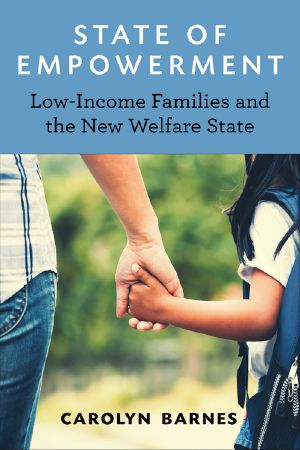State of Empowerment, Low-Income Families and the New Welfare State

- Authors
- Barnes, Carolyn
- Publisher
- University of Michigan Press
- Tags
- pol038000 political science , public policy , cultural policy
- Date
- 2020-03-09T00:00:00+00:00
- Size
- 0.70 MB
- Lang
- en
On weekday afternoons, dismissal bells signal not just the end of the school day but also the beginning of another important activity: the federally funded after-school programs that offer tutoring, homework help, and basic supervision to millions of American children. Nearly one in four low-income families enroll a child in an after-school program. Beyond sharpening students’ math and reading skills, these programs also have a profound impact on parents. In a surprising turn—especially given the long history of social policies that leave recipients feeling policed, distrusted, and alienated—government-funded after-school programs have quietly become powerful forces for political and civic engagement by shifting power away from bureaucrats and putting it back into the hands of parents. In *State of Empowerment* ****Carolyn Barnes uses ethnographic accounts of three organizations to reveal how interacting with government-funded after-school programs can enhance the civic and political lives of low-income citizens.